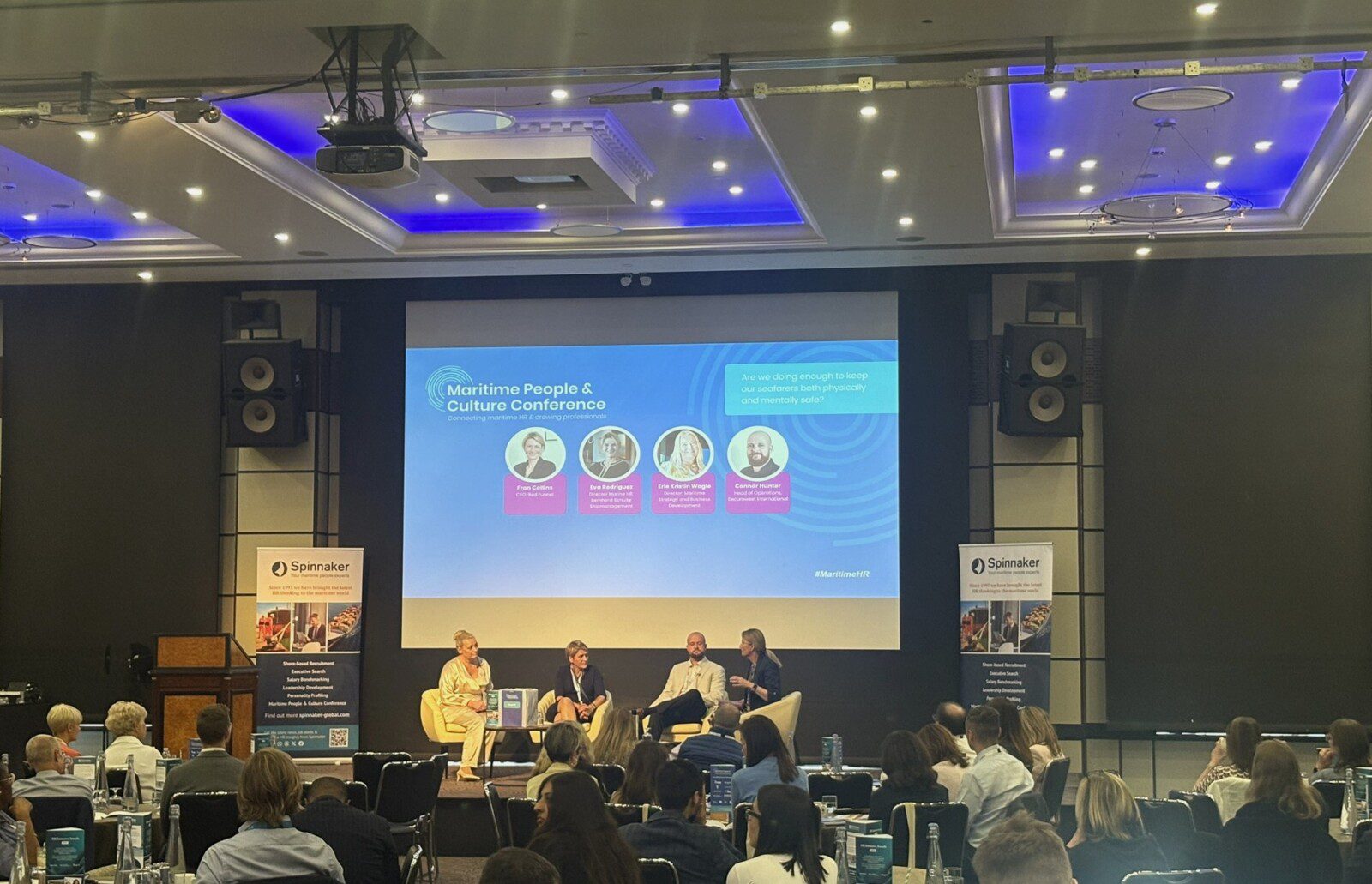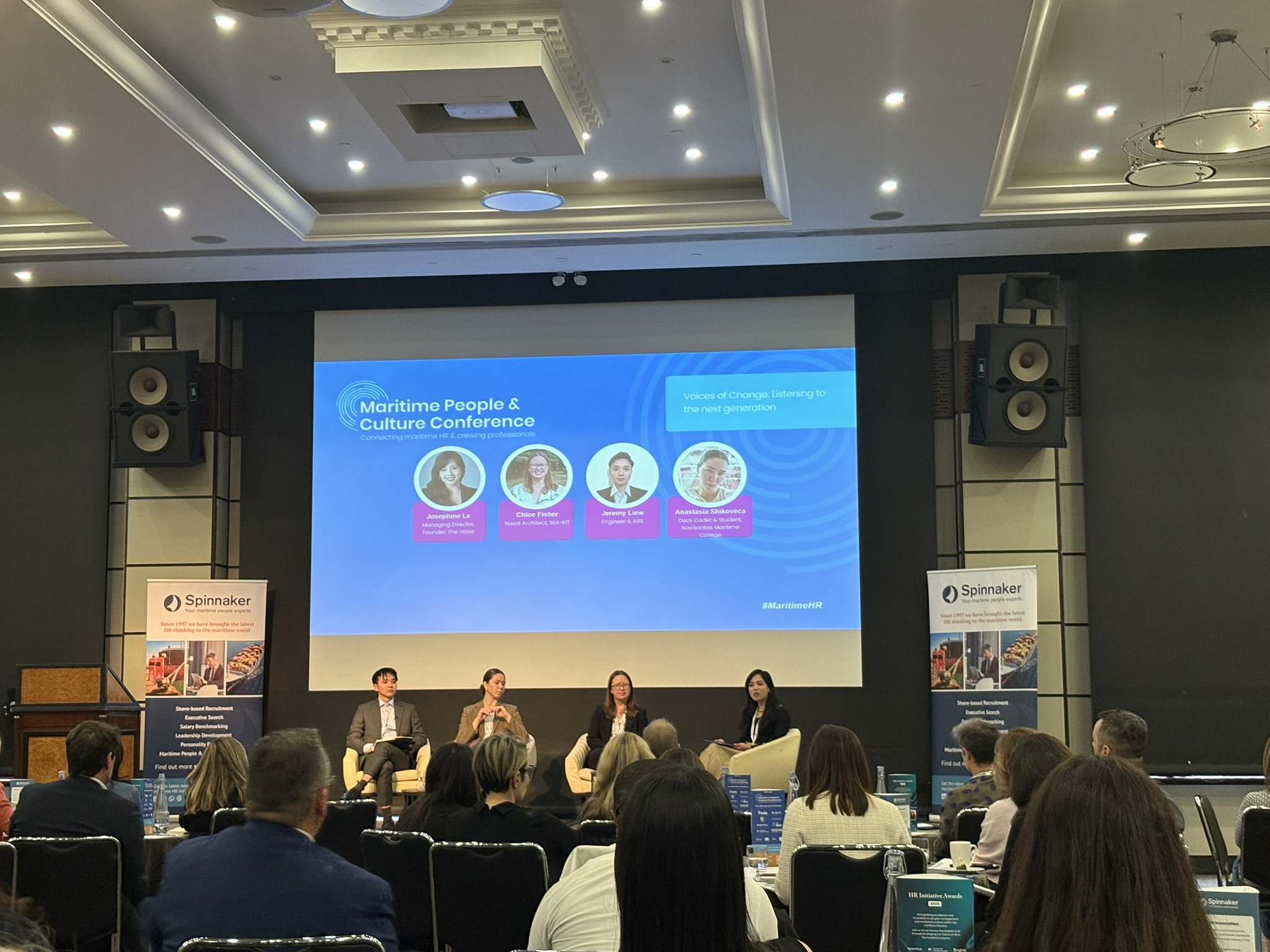Topics Explored
In May 2025, maritime professionals from around the world gathered in London for the Spinnaker Maritime People and Culture Conference, which is one of the world’s leading conferences on the human element in shipping and the maritime industry. Among those calling for positive change was Securewest International, which was represented by our Head of Operations, Connor Hunter. With a focus on crew welfare and seafarers’ safety, Securewest’s presence echoed the industry’s path toward prioritising not just operational efficiency but also the welfare of its most precious asset: people.
Key Themes from the Spinnaker Conference
The 2025 Spinnaker conference brought HR leaders, ship managers, and seafaring experts together to exchange thoughts on managing current and emerging issues in the maritime industry. From diverse management of multicultural crews and talent pipelines to inclusive leadership and wellbeing, the conference showcased the social infrastructure that supports global shipping.
One of the key topics for this year’s maritime conference was shifting practice when it comes to mental health support at sea. Delegates considered how to reduce stigma, integrate mental health training, and leverage technology in a bid to build crew resilience. The impact of ESG (Environmental, Social and Governance) frameworks on people management practice was also widely discussed, emphasising that safety and welfare are as much about human dignity as they are about compliance.
Securewest’s Contribution – Are We Doing Enough to Keep Seafarers Safe?
Our Head of Operations, Connor Hunter, joined other panellists Erle Kristin Wagle (Mintra), Fran Collins (Red Funnel), and Eva Rodriguez (Bernhard Schulte Shipmanagement), to share Securewest’s experience at the intersection of maritime operations and risk management.
The session opened with a real-life account of harassment at sea, setting a serious tone and underscoring the human cost of failing to prioritise safety and respect on board. Throughout the discussion, the panel explored how effective seafarer safety goes far beyond compliance; it’s rooted in trust, cultural change, and human dignity.
Together, the speakers highlighted the need for leadership training, open communication, and a working culture where wellbeing support is standard, rather than an afterthought. Their argument was straightforward: if shipping does genuinely prioritise safety above all else, then seafarers’ wellbeing must be treated as a frontline issue.

Why Seafarer Wellbeing Matters
The risks of overlooking crew wellbeing are well-known in advance. Stress, fatigue, and poor mental wellbeing can lead to compromised performance, worse decision-making, and increased accident risks. In extreme cases, untreated mental illness has led to injury or crew abandonment. These are not isolated personal tragedies; they are a reflection of systemic risks to safety and compliance across the industry.
As covered in our article Enhancing Seafarer Welfare Through Training & Certification, seafarers frequently report that they are inadequately prepared to cope with the psychological pressures of seafaring life. Lack of adequate organised support and inconsistent onboard policies also intensify the issue. Forward-thinking organisations are now moving towards incorporating more mental health training, peer support mechanisms, and crisis response strategies as part of crew training and ship operations.
Securewest’s Approach to Seafarer Welfare
At Securewest, seafarer welfare is viewed as an essential component of maritime security. Our approach integrates proactive planning, tailored training, and real-time monitoring to support both crew safety and vessel operations.
This includes 24/7 access to our Global Response Centre, live tracking tools, and intelligence services designed to assist during high-pressure situations. By embedding wellbeing support into wider risk management frameworks, we aim to help maritime organisations navigate today’s complex operating environment with greater resilience.
A Culture Shift in Maritime Safety
As the Spinnaker Conference illustrated, the conversation around maritime safety is evolving. There’s growing recognition that lasting security depends not just on systems and procedures, but on the long-term wellbeing and engagement of seafarers themselves.
For organisations across the sector, this means rethinking how training, leadership, and cultural norms support crew resilience. It’s a shift already underway, and one that promises to make maritime operations safer, more sustainable, and more humane.
